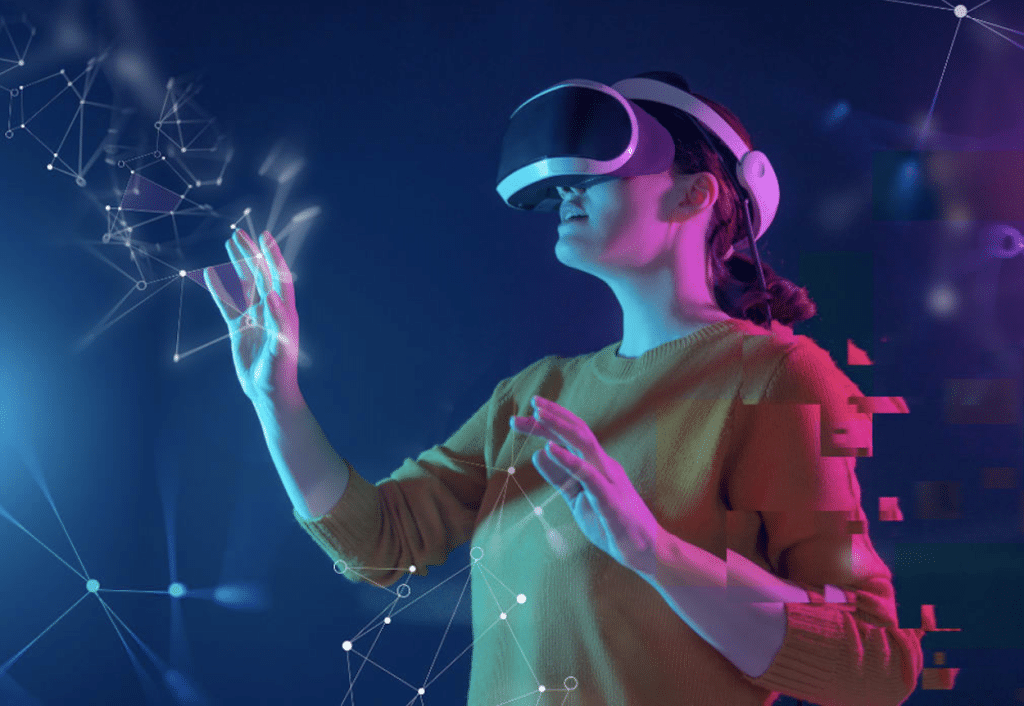In 2025, technology is not just influencing the entertainment industry, it’s completely reinventing it. From Sydney’s virtual concert arenas to blockchain-backed film distribution platforms, the lines between innovation and entertainment are rapidly disappearing. Creators are harnessing powerful tools like AI, VR, and decentralised networks to produce content that’s smarter, faster, and more immersive than ever before.
This article dives into the most transformative tech trends shaping the entertainment world this year, with a sharp lens on how these shifts are playing out across Australia’s unique cultural and creative landscape.
Blockchain’s Role in Reshaping Entertainment
Blockchain technology is emerging as a game-changer in the entertainment industry. Its decentralized nature offers enhanced security, transparency, and efficiency in various applications, from content distribution to audience engagement.
In Australia, blockchain is being leveraged to combat issues like ticket scalping and fraud in the live events sector. As reported by Xpress Mag, blockchain’s transparent ledger system ensures fairer ticketing processes, benefiting both artists and fans.
One notable development in digital entertainment is the rise of decentralized platforms powered by blockchain technology. These innovations not only enhance transparency and user control but also fuel the growth of alternative online ecosystems, particularly in gaming.
For instance, several crypto-focused gambling partners have compiled detailed reviews of the best bitcoin poker sites, spotlighting platforms that prioritize secure, fast, and decentralized user experiences. This evolution reflects a broader movement within the digital space toward services that bypass traditional gatekeepers, appealing to Australian users interested in privacy and speed.
This shift is also evident in the entertainment sectors where users seek both engagement and financial utility, such as crypto betting. With blockchain ensuring transparent transactions and provable fairness, more Australians are exploring platforms that combine gaming with digital currency ecosystems.
Artificial Intelligence Enhancing Content Creation
Artificial Intelligence (AI) is revolutionizing content creation and personalization in the entertainment industry. AI algorithms analyze viewer preferences to recommend tailored content, enhancing user engagement and satisfaction.
In Australia, AI is being integrated into various aspects of media production. According to a report by Forbes, AI-driven tools are enabling creators to generate realistic visual effects and automate editing processes, streamlining production workflows.
Moreover, AI is facilitating the development of virtual influencers and digital avatars, opening new avenues for storytelling and audience interaction. This trend is evident in projects like Ruyui Studios’ on-chain avatars, which blend animation and blockchain technology to create immersive entertainment experiences.
Beyond the screen, AI is also a key driver in the emergence of digital personalities. Virtual influencers, created through AI algorithms and animated in real-time, are collaborating with Australian brands in marketing campaigns, connecting with others, digitally native audiences. These AI avatars are beginning to reshape the advertising and promotional playbook in ways that challenge traditional notions of celebrity and endorsement.
The Rise of Immersive and Interactive Experiences
The Australian entertainment landscape is increasingly dominated by technologies that place users directly into the story. In 2025, immersive formats such as VR and AR have moved beyond gaming and are now integrated into music, cinema, education, and even journalism. Production houses are building “mixed-reality” concert tours that allow fans in Sydney or Melbourne to attend a live concert through VR headsets, complete with interactive features like virtual meet-and-greets and behind-the-scenes content.
A standout example is the Australian Open’s use of “AO Animated,” a real-time animation engine rendering live tennis matches as they happen. This blend of sport and animation is attracting new audiences, engaging coverage. As reported by The Guardian, the format allowed producers to present an innovative viewing experience that was more accessible and engaging for digital audiences.
This kind of interactive content is becoming increasingly common across Australian media platforms. AR apps tied to television shows or documentaries allow viewers to scan QR codes and explore 3D models of sets or participate in live polls.
Meanwhile, blockchain-backed ticketing companies like Tixbase are incorporating gamification and digital collectibles into event experiences, giving fans interactive digital tokens that commemorate attendance and grant access to exclusive content.
The Future of Entertainment Is Already Here
The technological shift within the entertainment industry isn’t looming on the horizon, it’s already unfolding in real time. As blockchain offers transparency and control, AI brings speed and personalization, and immersive tech redefines storytelling, Australia finds itself not just adapting but actively shaping the global entertainment narrative.
This evolution is about more than gadgets and code; it’s about redefining how stories are told, how audiences connect, and how creators thrive. From Sydney’s VR-driven concerts to Melbourne studios deploying AI editors, the line between tech and entertainment continues to blur in exciting, meaningful ways. For Australians and the world, 2025 isn’t just another chapter in entertainment, it’s a complete rewrite.
